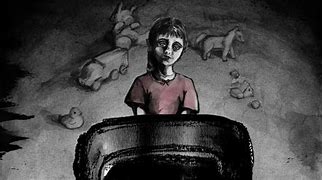VIEWPOINTS – Opera companies turn to other mediums to persist the art form: SOLDIER SONGS & THE FALL OF THE HOUSE OF USHER
- By drediman
- February 3, 2021
- No Comments
Apart from filming opera productions in empty auditoriums for streaming consumption (which was the case with Opéra-Comique’s buoyant recent production of Titon et l’Aurore directed by master puppeteer Basil Twist), opera companies have had to revisit their strategy to continue to produce works during the pandemic. Prime examples include the current offerings of Opera Philadelphia and Boston Lyric Opera, two companies that have turned to full-blown filmmaking – including animation – as a means to present new content in lieu of physically staged productions. By fully embracing other mediums, these American opera companies have become torch bearers for the art form, evolving and persisting opera to keep it relevant during times like these.

SOLDIER SONGS
Opera Philadelphia
On-demand on the Opera Philadelphia Channel
Opera Philadelphia has savvily established its very own channel from which to broadcast new content, which includes the new film adaptation of Soldier Songs (RECOMMENDED), David T. Little’s fragmented, hard-hitting solo opera about an anonymous soldier. Essentially, the opera is a surreal collage of flashbacks which collectively encapsulate the soldier’s changing relationship with war. Mr. Little’s post-modern score is eclectic yet cohesive, exhibiting an uncanny ability to match musical styles (sometimes satirically) with our hero’s unsteady mental state, which includes various states of excitement, trauma, and confusion. As the opera’s “every-soldier”, baritone Johnathan McCullough gives a potent performance that’s both vocally sensitive and dramatically convincing. Mr. McCullogh’s singing is captured live, which gives his performance a visceral theatricality that counterbalances the polished filmmaking (Mr. McCullogh also directed the film). The production’s primary visual conceit revolves around a trailer – perhaps the site of the soldier’s childhood or his secluded hideaway after retiring from active duty? – which serves as both backdrop and witness to the hallucinatory proceedings. I look forward to perusing other Opera Philadelphia offerings on the company’s channel.

THE FALL OF THE HOUSE OF USHER
Boston Lyric Opera
On-demand through June 30
Similarly, the folks at Boston Lyric Opera have sought out other mediums to inject excitement into the company’s virtual season. In the case of its presentation of Philip Glass’s operatic adaptation of The Fall of the House of the Usher (RECOMMENDED), the creative team has turned to animation for its retelling of Edgar Allan Poe’s gothic psychological thriller. As a whole, the project calls to mind the works of Manual Cinema, the Chicago-based collective acclaimed for ingeniously combining cinematic animation techniques, theater/puppetry, and live music – as well as sophisticated, layered storytelling – to create its distinctive aesthetic. BLO’s production employs stylish 2D and stop motion animation, which beautifully compliments the hypnotic quality of Glass’s minimalist score (which veers awfully close to other works by the iconic composer, particularly the opera Akhnaten and his Dracula film score). The animated film also distinguishes itself by expanding upon Poe’s underlying tale by weaving in a disparate narrative (no spoilers here), as well as saturating the whole thing with cultural iconography (via a barrage of television clips). Although the overall effect may lack some of the suspense and menace that you’d expect from an adaptation of The Fall of the House of Usher, the end result is nonetheless thick with atmosphere and captivating imagery.

 Copyright © 2025
Copyright © 2025
Leave a Reply